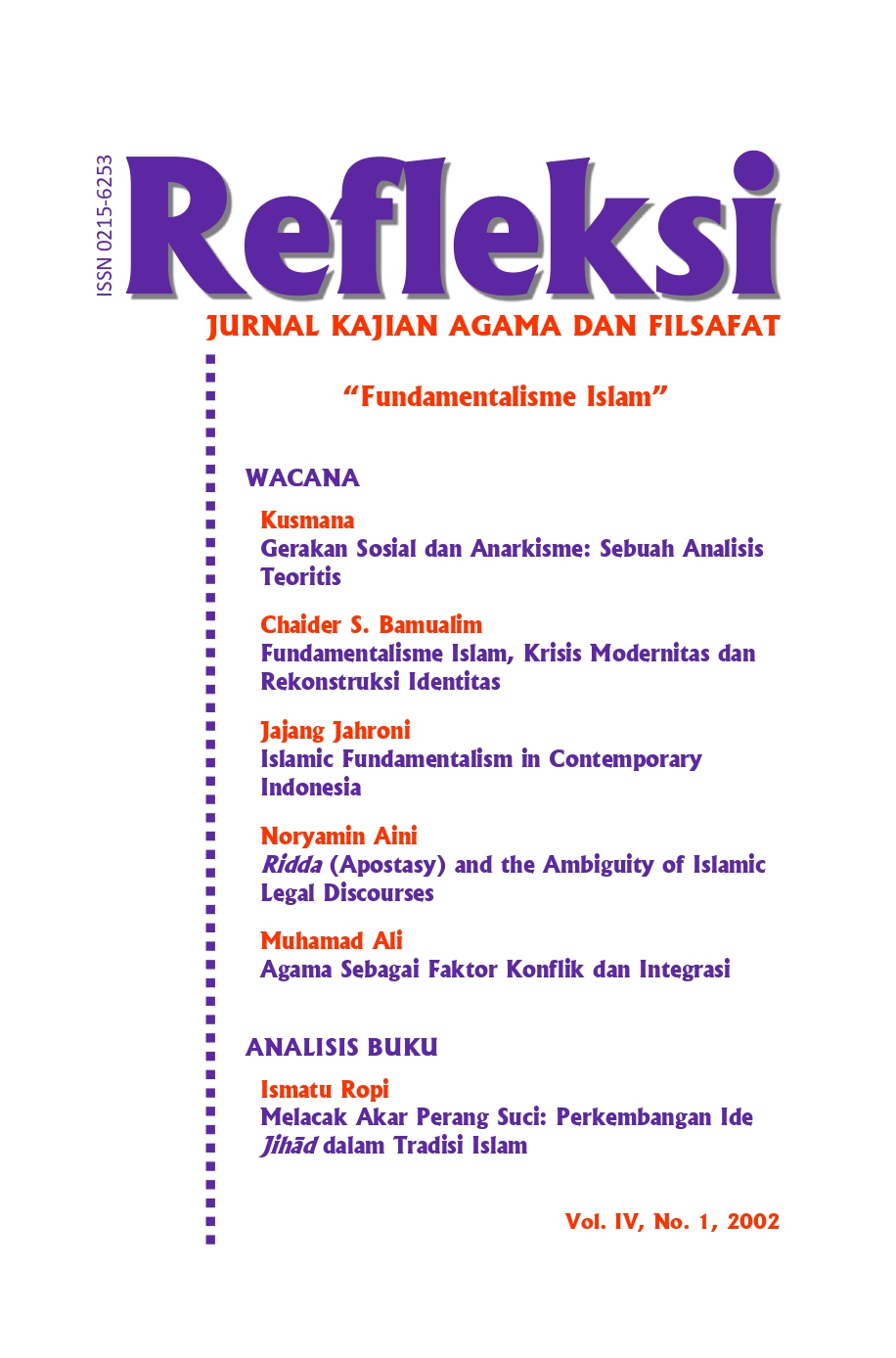Humanisme Freudian dan Pandangannya tentang Agama
DOI:
https://doi.org/10.15408/ref.v4i1.44775Keywords:
Freud, Humanism, Psychoanalysis, Philosophy, Religion, Unconscious MindAbstract
Freud’s psychoanalytic influence extends beyond psychology, significantly impacting philosophy by introducing a fundamental understanding of human nature, shaped by unconscious impulses. This paper explores Freud’s contributions to philosophy, particularly his perspectives on human nature and religion. By analyzing his theories, we aim to understand how his psychoanalytic framework redefined traditional views on religious belief and human existence.References
Freud, Sigmund, Civilization and Its Discontents, James Strachey (editor), New York, 1961.
-------. Civilization Sexual Morality and Modern Nervous Illness dalam Robert Bocock (editor), “An introduction to Sociology”, 1981.
-------. Sekelumit Sejarah Psikoanalisa, terjemahan K. Berteens, Gramedia, Jakarta, 1983.
-------. Totem and Taboo, (1950)
-------. The Standard Edition of the Complete Psychological Works of Sigmund Freud, Vol. IX — XXIII.
-------. Moses and Monotheism, (1940)
-------. The Future of an illusion, (1927)
Hall, C.S., Sigmund Freud, Suatu Pengantar ke dalam Ilmu Jiwa Freud, terjemahan S. Tasrif, Jakarta, 1960.
Ensiklopedia Psikologi
Marcuse, Herbert, Eros and Civilization, A Philosophical Inquiry into Freud, Boston, 1970.
Concilium Vol. 16 (1966), The Atheism of Freudian Psychoanalysis.
Fromm, E., The Crisis of Psychoanalysis, n.p., n.d.
E, Jones, Sigmund Freud Life and Work (1956)








